
Woman Explains How People Used To Work Much Less Back In The Day, Inspires A Discussion On Toxic Work Culture
There are tons of articles, books, and other resources about how to be more productive and cross more tasks off your never-ending to-do list.
Productivity has earned itself such an important role in our society that many of us even feel guilty when we don’t spend every minute of every day chasing some goal.
There’s a book that delves deep into this phenomenon. It’s called Do Nothing: How to Break Away from Overworking, Overdoing, and Underliving and was written by award-winning journalist, author, and public speaker Celeste Headlee.
When the content creator who goes by the nickname Simplifying Sam came across the title, she was immediately captivated by it. But after the woman read it, she liked it even more.
So much so that Simplifying Sam even took the time to tell her followers about it.
TikToker Simplifying Sam has read the book Do Nothing: How to Break Away from Overworking, Overdoing, and Underliving and she loved it so much, she did a video about it
@simplifying.sam Do nothing, live more #ihatecaptialism#capitalism#marxism♬ original sound – Samantha
In it, the content creator breaks down the guilt we feel when we take time off and aren’t being productive
Image credits: simplifying.sam
“The book was extremely easy to understand,” Simplifying Sam told Bored Panda
Image credits: simplifying.sam
Image credits: simplifying.sam
Image credits: Erica Guilane-Nachez
Image credits: archives.gov
According to Heidi Grant, the director of research and development for Americas Learning at EY and the author of No One Understands You and What to Do About It, our end-of-workday shame for not having accomplished what we set out to is often not an indicator that we’re useless, but the result of unrealistic expectations.
“Most humans are overly optimistic—we enter the day with an expectation and plan of getting all sorts of things done,” she told Harvard Business Review. But the trouble is, “we are not grounding our expectations in the reality of the work that we do.”
So invariably when 6 o’clock rolls around, we feel anxious and guilt-ridden, Whitney Johnson, the executive coach and author of Disrupt Yourself, added. “You look at what you didn’t get done, and you get that sinking feeling deep in your soul that you are not enough.” But, Johnson said, “you mustn’t feel like a failure.”
Image credits: dbio.dk
People who have been conditioned to view their results as their ‘business cards’ can be too hard on themselves.
“We link our behavior, our performance, our productivity, with our self-worth,” Julie de Azevedo Hanks, Ph.D, LCSW, founder and executive director of Wasatch Family Therapy, a private practice in Utah, told PsychCentral. So when we’re being less productive, we simply feel like we’re doing something wrong. Breaking the rules.
We also (mistakenly) believe that there’s “actually a point where we get everything done that we want to, or should, or expect.” And we start to associate relaxing with being lazy, bad, or worthless.
Image credits: National Portrait Gallery
Image credits: Alex Kotliarskyi
Soon after, Simplifying Sam released a follow-up video to end her analysis of the book
@simplifying.sam My unsolicited presentation on why we should work less or why you think you should always work more #ihatecaptialism♬ original sound – Samantha
Our culture is organized by a hierarchical ranking of its members. In this dominator model, we are always being threatened. That’s because “if someone is doing more or doing better, you lose your rank or position in the hierarchy,” Hanks said.
But on the other end of the spectrum is the “partnership model, whose fundamental organization is around linking and connecting.”
The key is to recognize that there’s more than just one way for us to exist. “We don’t have to rank, compare, compete.” Hanks likes to visualize everyone on the same level playing field and focus on the similarities among us. “[W]e’ve all experienced pain, need connection with others, need to work, need to rest.”
Even if we look at highly competitive environments and markets. “Operating out of fear of being ‘less than,’ not being the ‘top dog,’ or not getting the promotion will likely make it less likely that you’ll get the promotion. [That’s] because you’ll be anxiously concerned with ranking and comparisons instead of doing a good job.”
Once again, we learn that fulfilment comes from within.
“The reactors were surprised yet unsurprised,” she said
“I think that everyone knows these underlying hidden values yet did not know how to put a name to their distress over it. This book helped with that!”
77Kviews
Share on FacebookI'm not defending the modern life style but there is a strong tendency to romanticize ancient and prehistoric times. "Humans were pretty happy living this way... until 1760" Really? Based on what information? Life expectancy was lower, women were basically chattel and many died in child birth or saw their infants die, wars were regular occurrences, and political upheaval were catastrophic events for those involved. If you think income inequality is bad now go back a couple of hundred years when there was no middle class. This idea that ancients worked intensively for a few weeks/months and the rest was party time is nonsense. Yes they didn't sit in front of a computer at a desk for eight hours a day but there was always work to do. At least now in western democracies you have some political power and a pathway to effect change. Stop b*tching and go vote or run for office .
The idea that "the ancients" worked less than we do is probably largely true, because "the ancients" we read about in history class were mostly slave owners and could use brutality to force others to work.
Load More Replies...I'm living in the Netherlands and I never met anyone who was feeling guilty because they were doing nothing. I just read a Dutch article that said that a 40 hours workweek is too stressful and that's why we need to scale down to 32 or even 24 hours. We also consider part time work normal.
yeah, no. historiaclly false. 4th centurry CE, there was no society that had 6 months, that is a myth promulagtaed in the 19th century by certain marxist factions. Further when they say the athenians had 60 holidays a year off, they had no concept of the weekend off. We get 104 weekend days off a year these days. Further those 60 days only applied to certain things, not all of society And the later history stuff in 90% false. This is BS that is not based in any historical facts. And this is why we learn from Historians and not tiktok
Please check anything this pathological liar has to say before you believe it.
Load More Replies...I'm not defending the modern life style but there is a strong tendency to romanticize ancient and prehistoric times. "Humans were pretty happy living this way... until 1760" Really? Based on what information? Life expectancy was lower, women were basically chattel and many died in child birth or saw their infants die, wars were regular occurrences, and political upheaval were catastrophic events for those involved. If you think income inequality is bad now go back a couple of hundred years when there was no middle class. This idea that ancients worked intensively for a few weeks/months and the rest was party time is nonsense. Yes they didn't sit in front of a computer at a desk for eight hours a day but there was always work to do. At least now in western democracies you have some political power and a pathway to effect change. Stop b*tching and go vote or run for office .
The idea that "the ancients" worked less than we do is probably largely true, because "the ancients" we read about in history class were mostly slave owners and could use brutality to force others to work.
Load More Replies...I'm living in the Netherlands and I never met anyone who was feeling guilty because they were doing nothing. I just read a Dutch article that said that a 40 hours workweek is too stressful and that's why we need to scale down to 32 or even 24 hours. We also consider part time work normal.
yeah, no. historiaclly false. 4th centurry CE, there was no society that had 6 months, that is a myth promulagtaed in the 19th century by certain marxist factions. Further when they say the athenians had 60 holidays a year off, they had no concept of the weekend off. We get 104 weekend days off a year these days. Further those 60 days only applied to certain things, not all of society And the later history stuff in 90% false. This is BS that is not based in any historical facts. And this is why we learn from Historians and not tiktok
Please check anything this pathological liar has to say before you believe it.
Load More Replies...
 Dark Mode
Dark Mode 

 No fees, cancel anytime
No fees, cancel anytime 


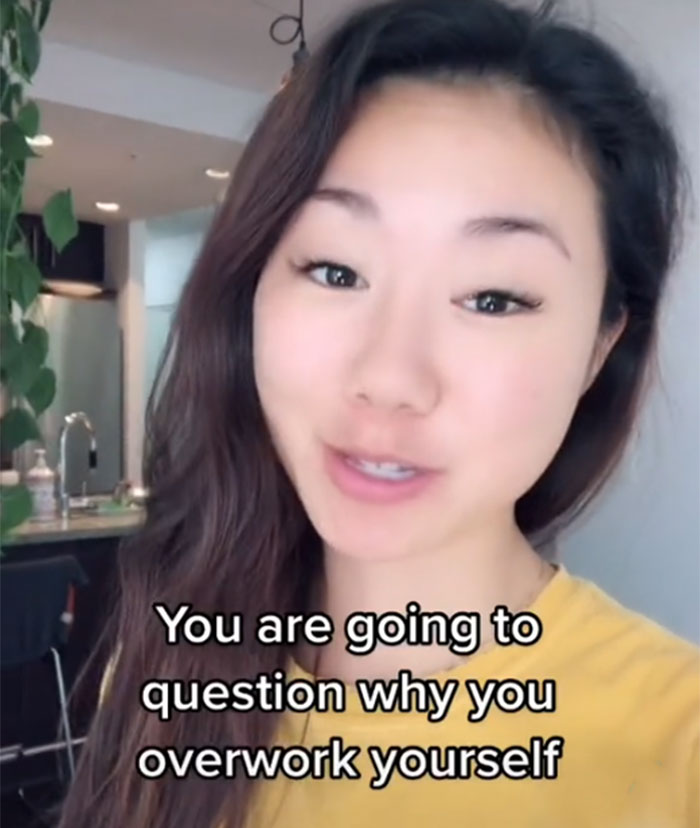
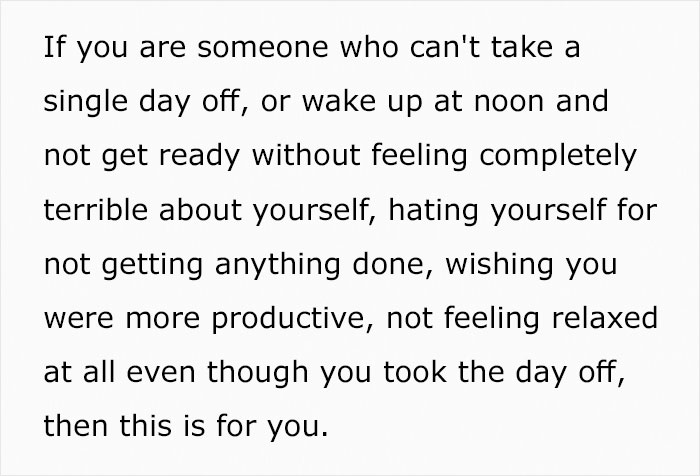
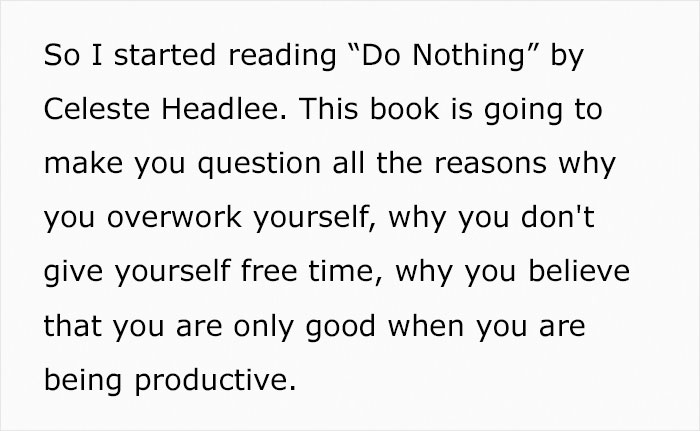
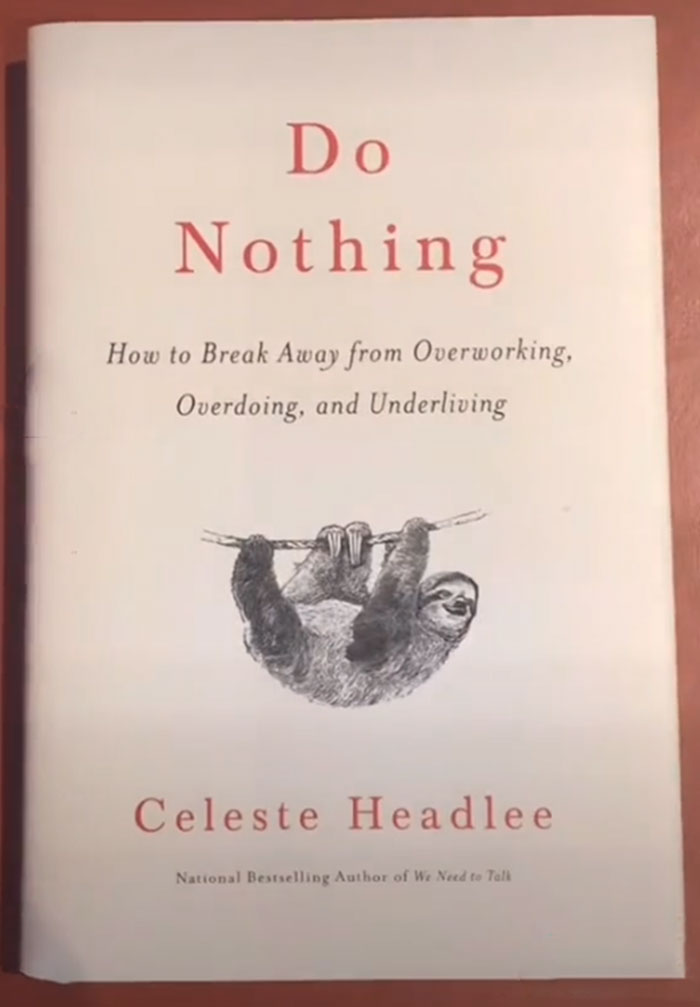


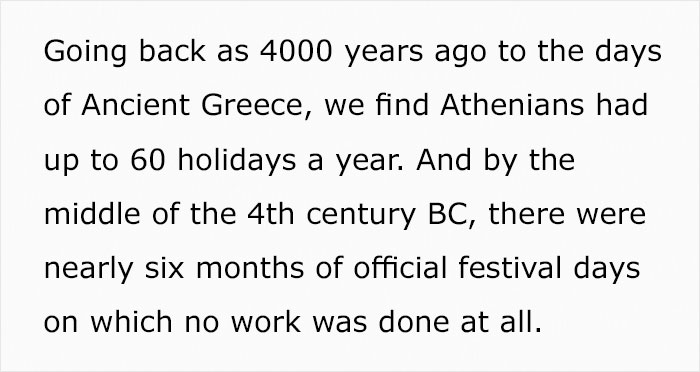

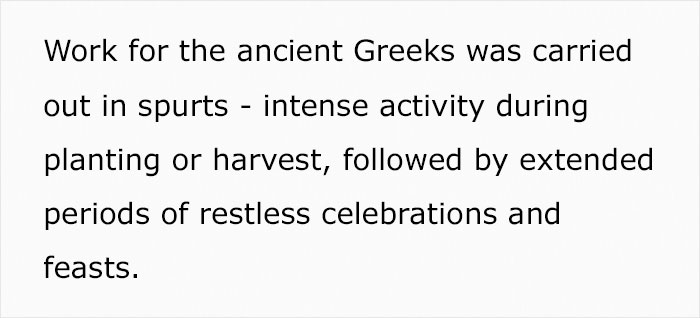
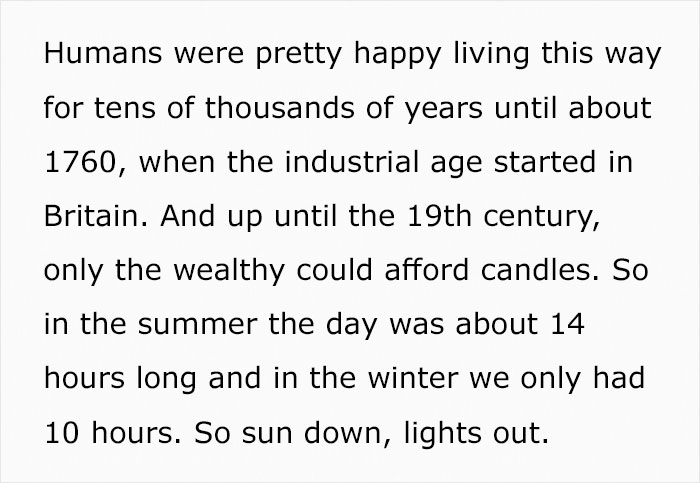
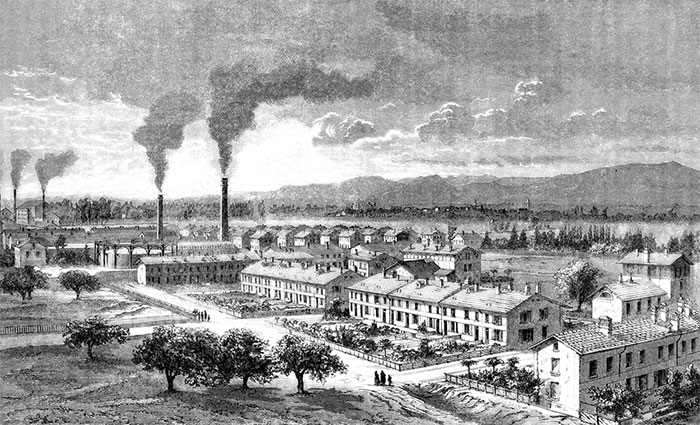
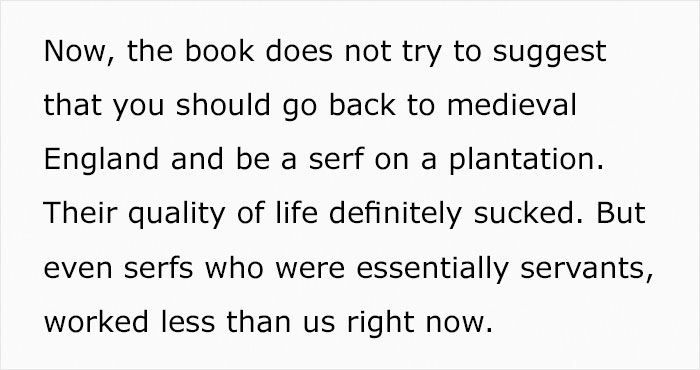
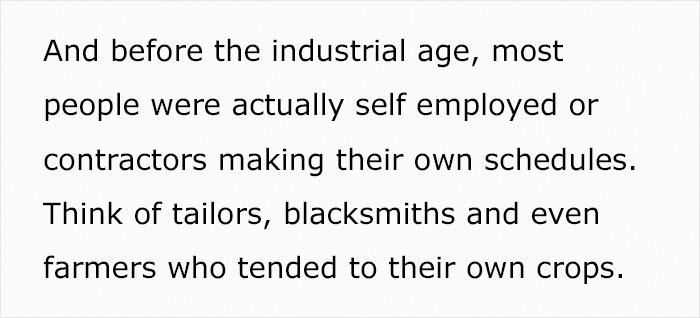
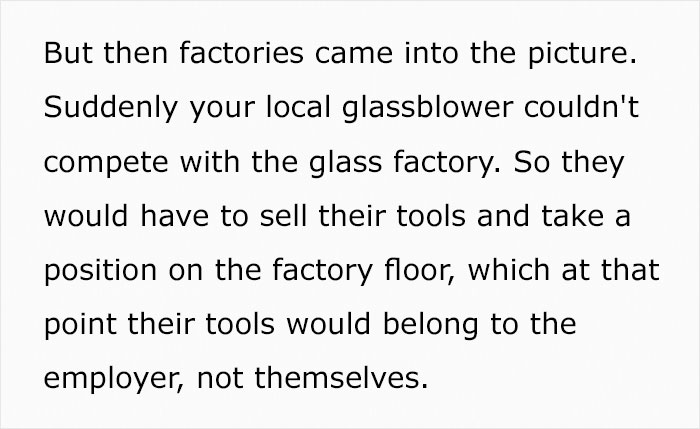
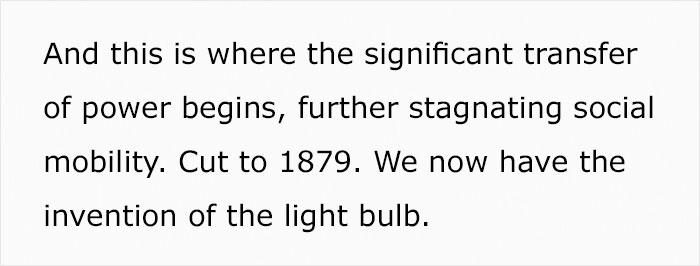
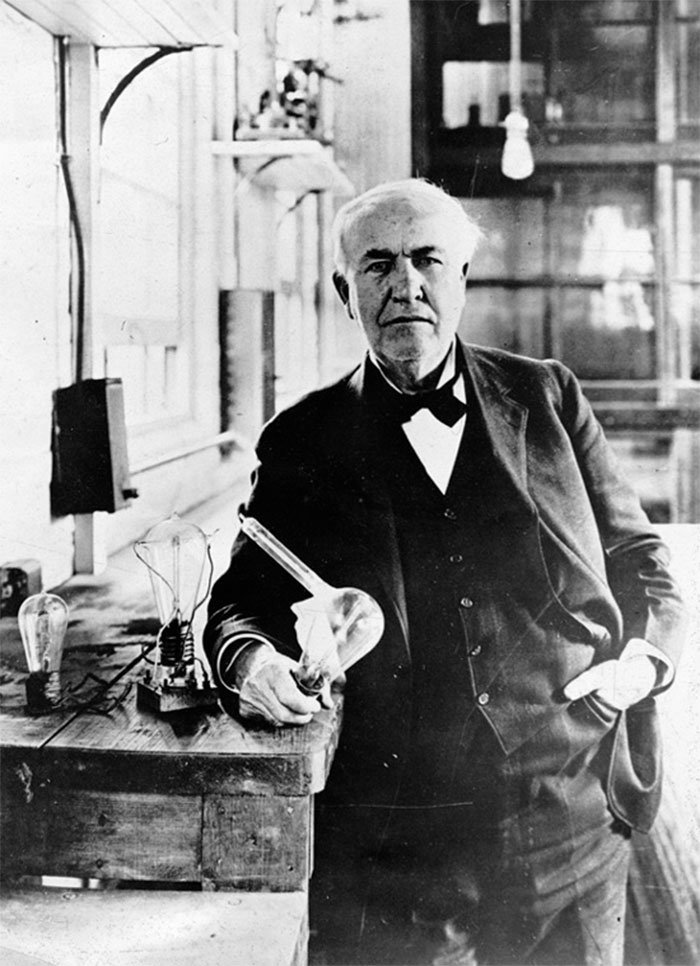
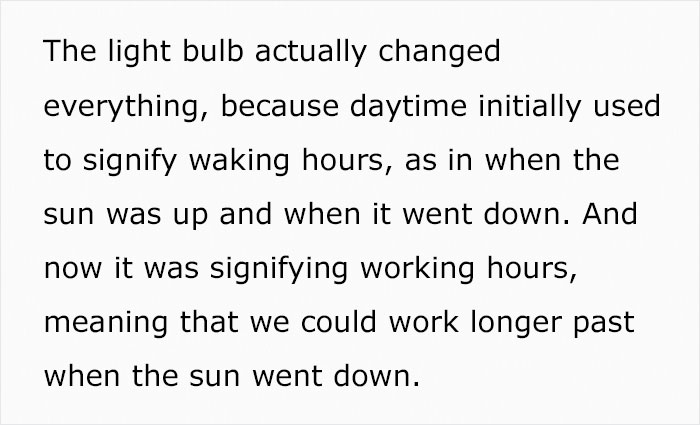
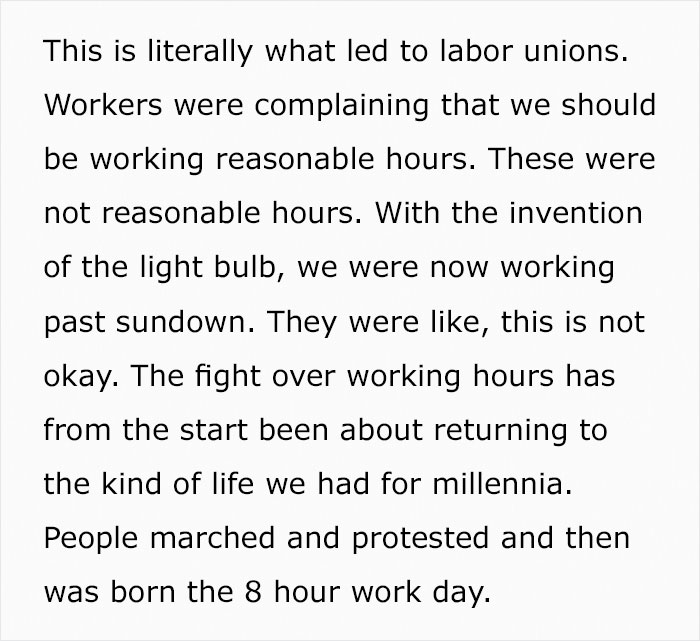
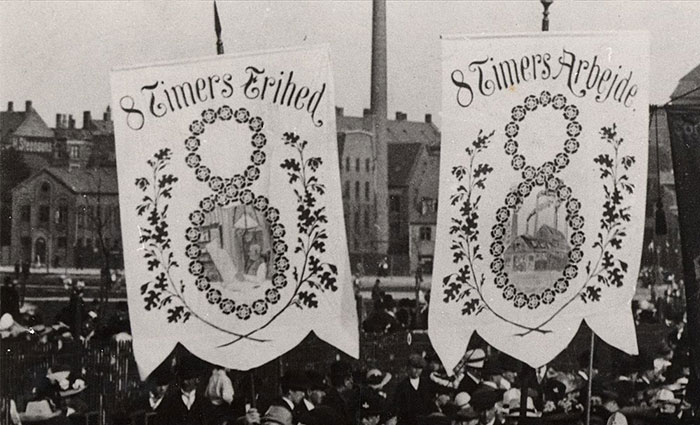
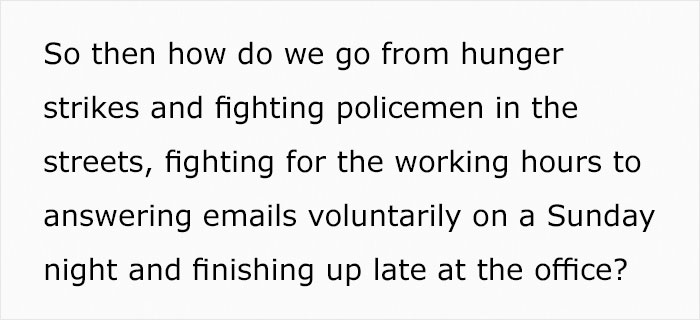
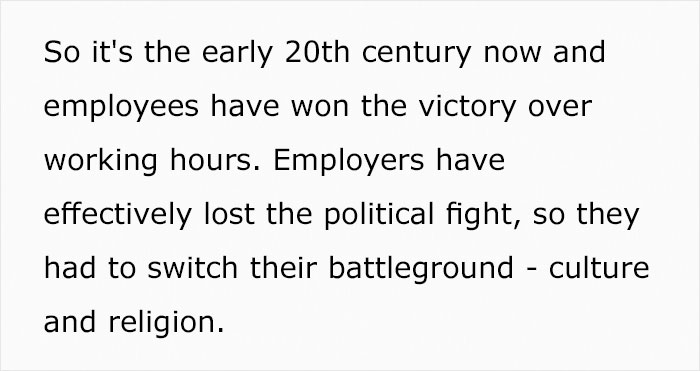
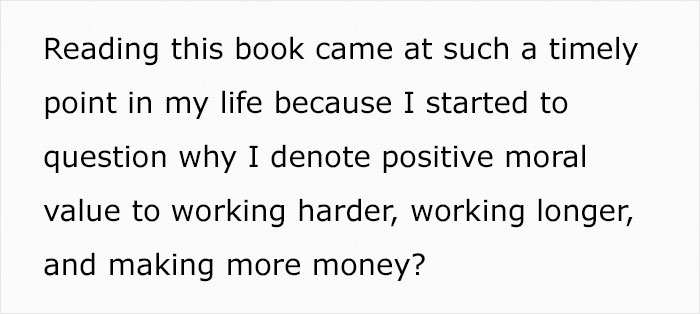
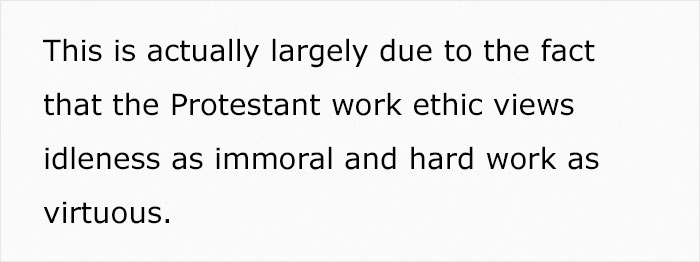
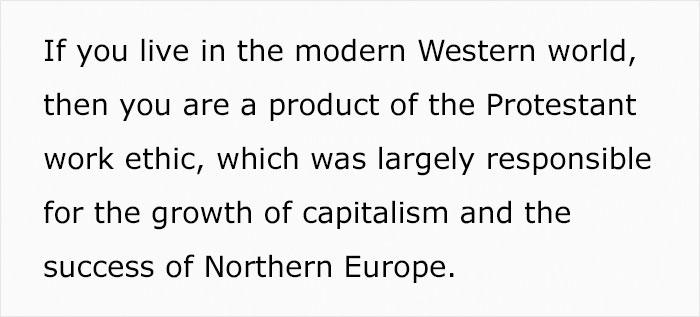
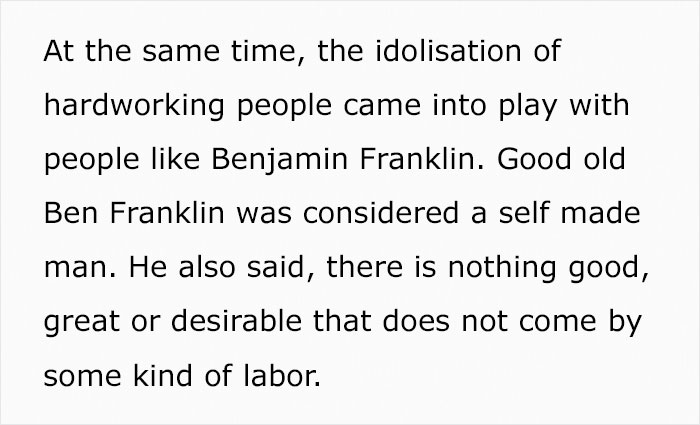

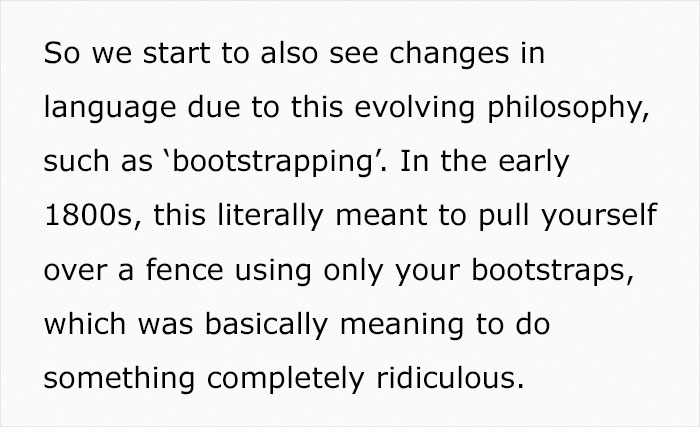
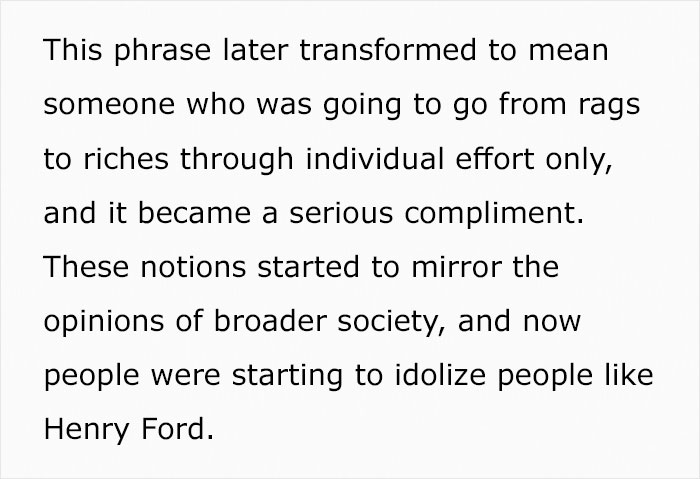
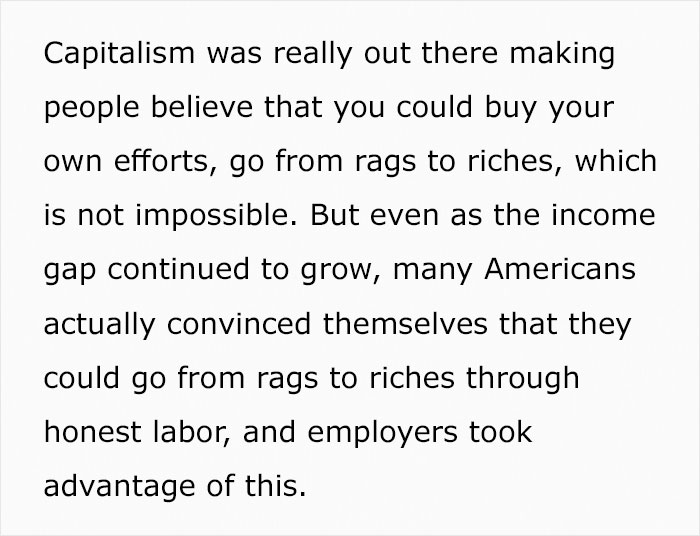
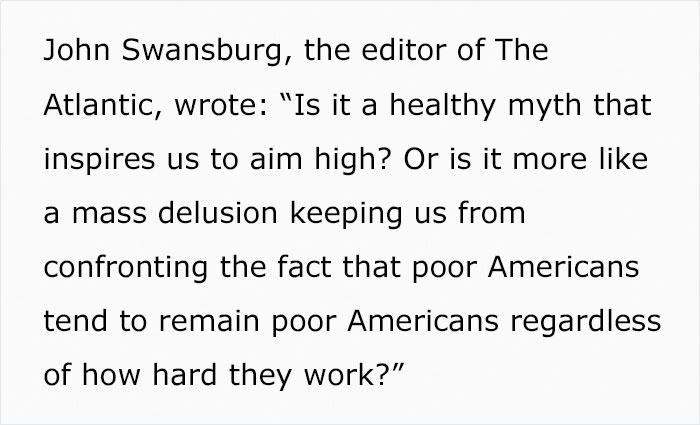
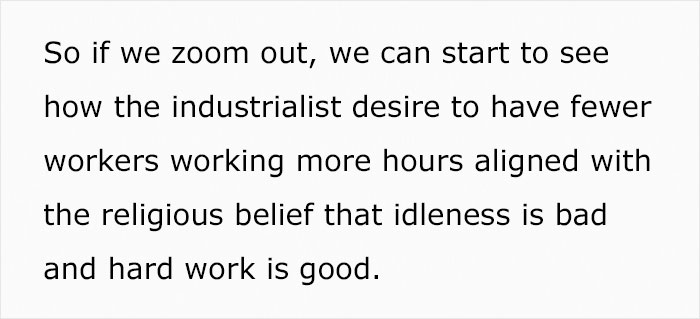
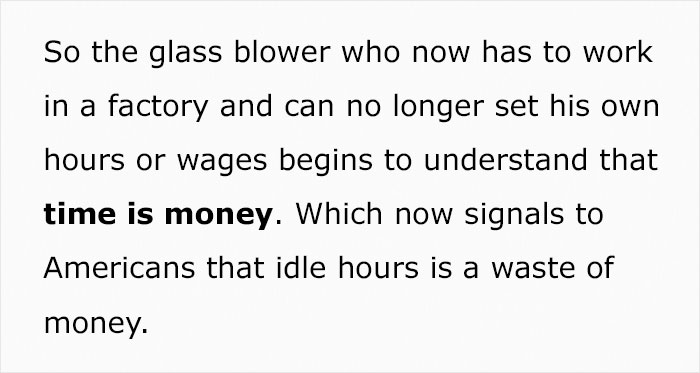
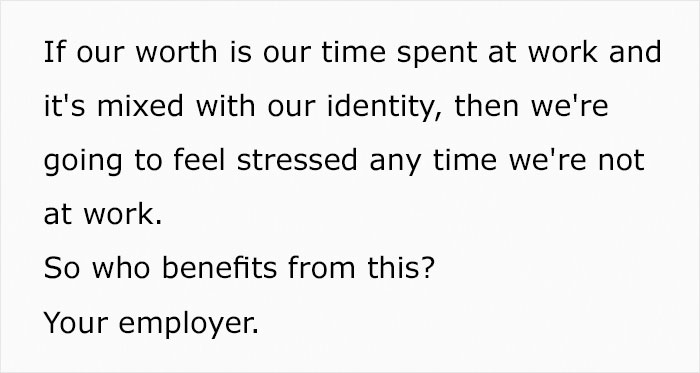
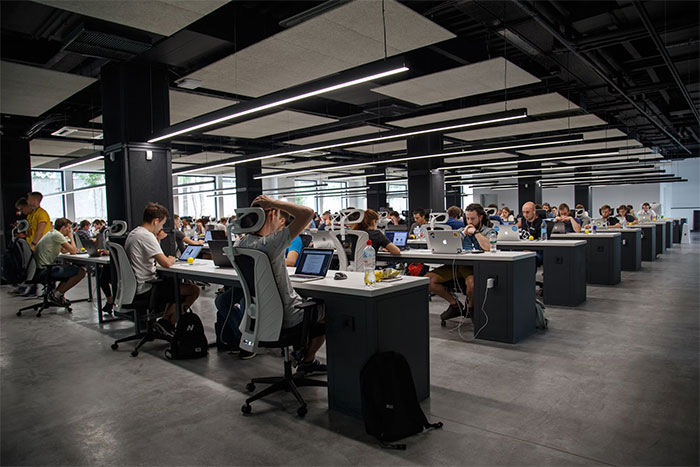


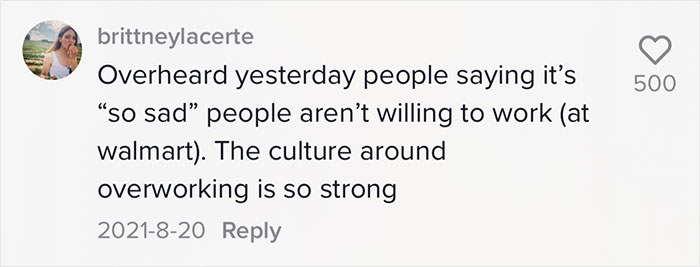
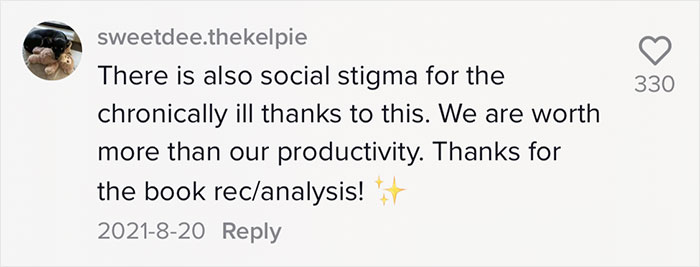
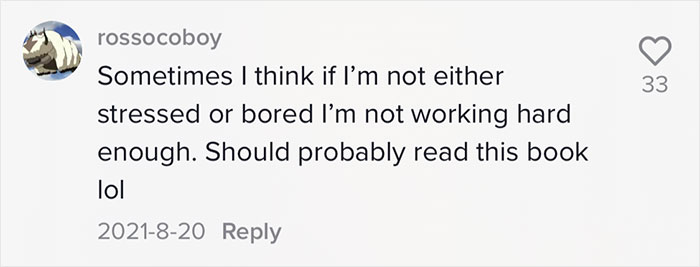
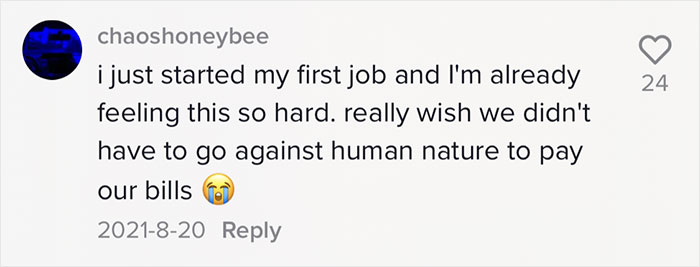


































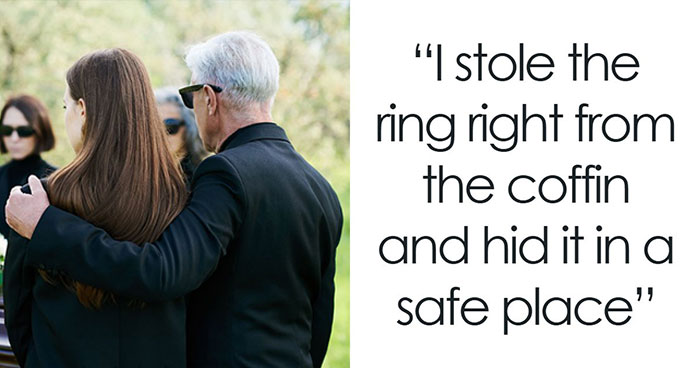










52
70